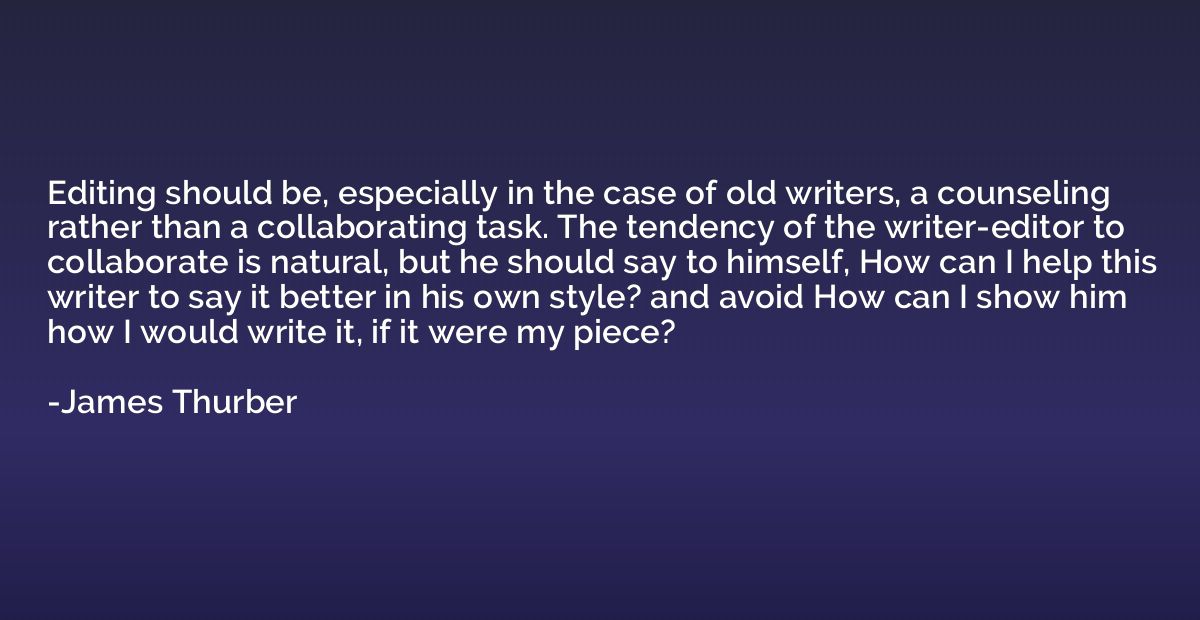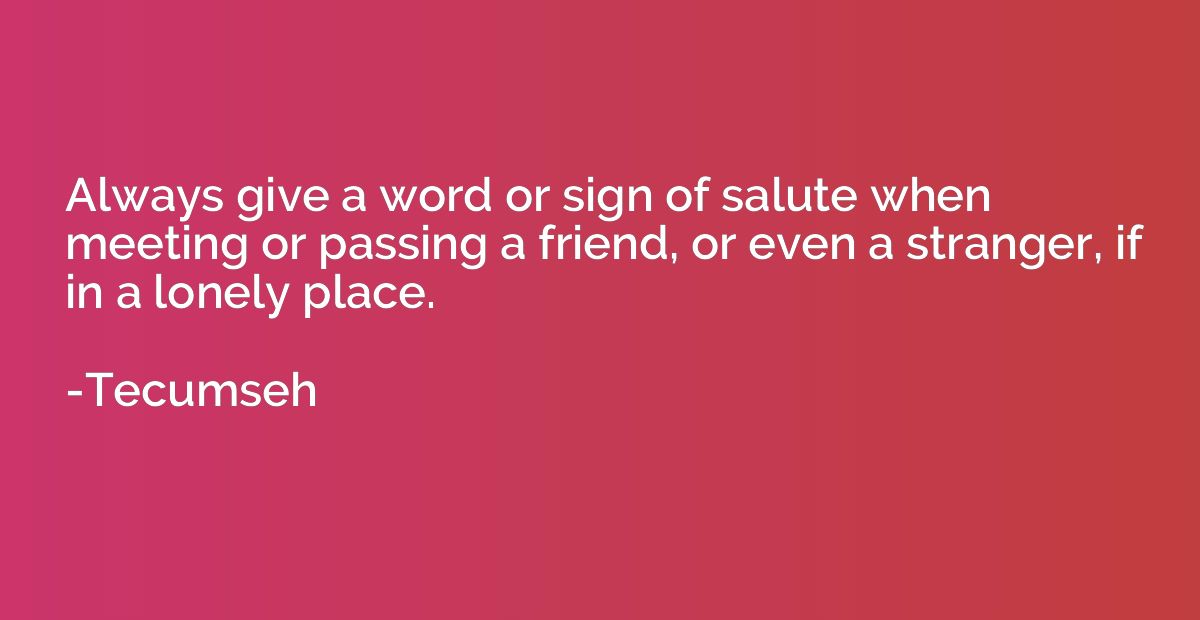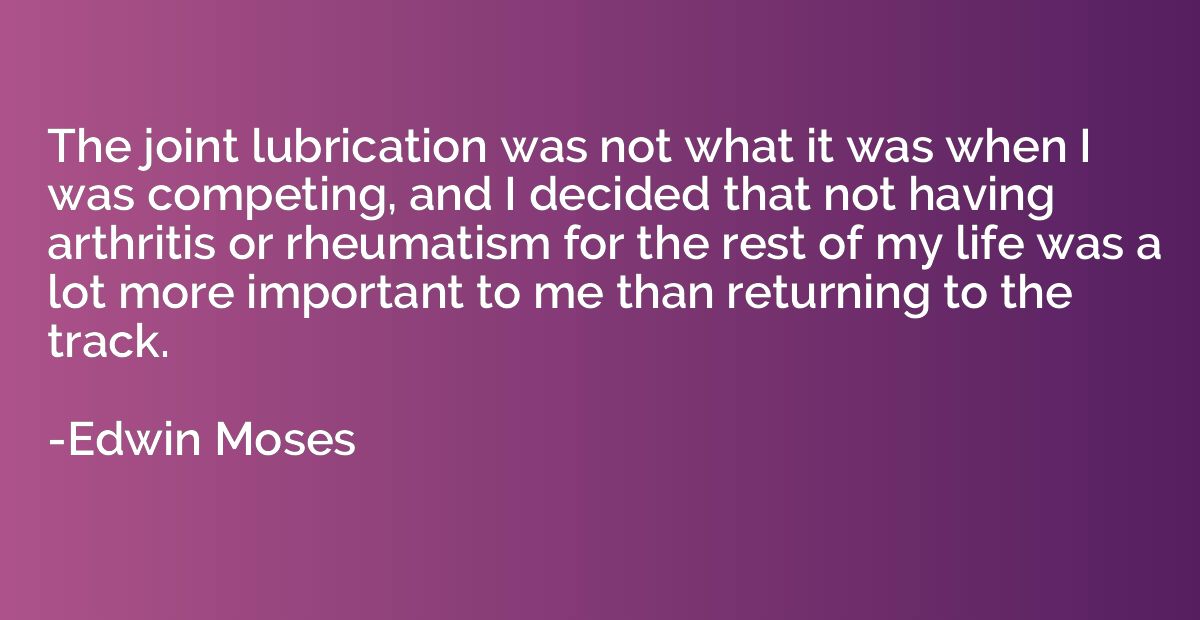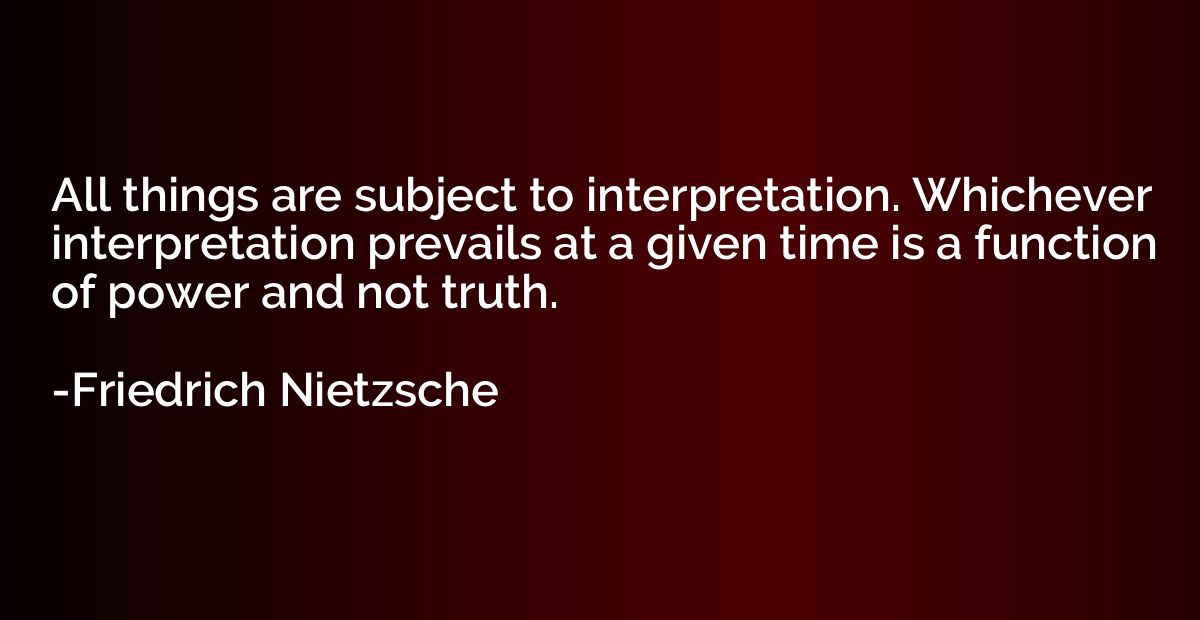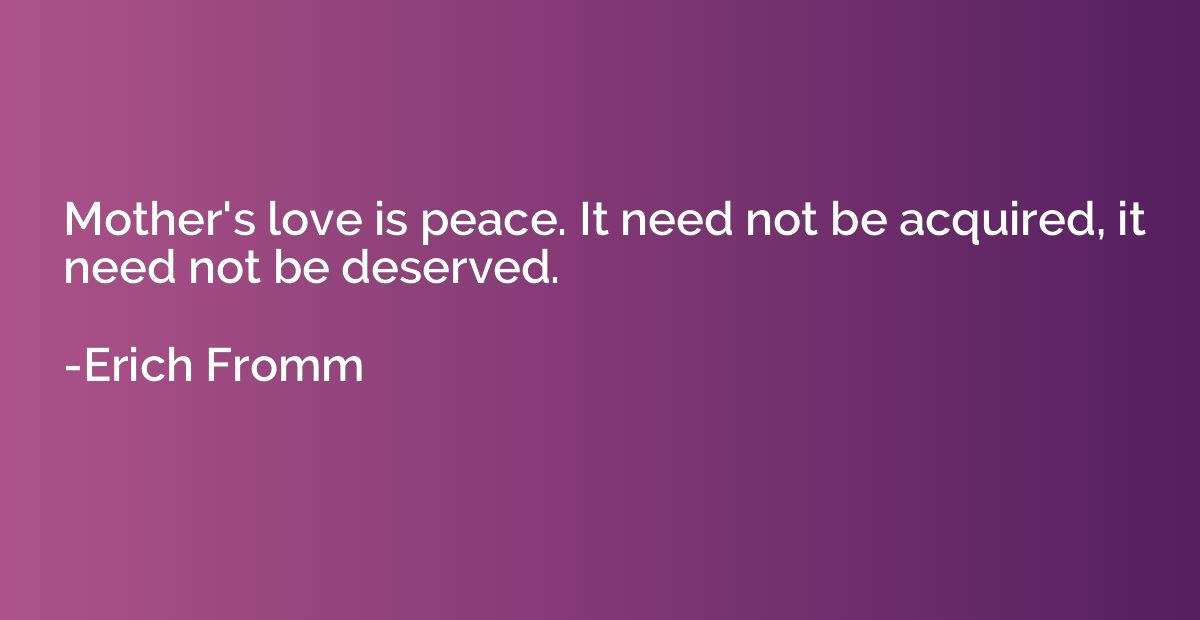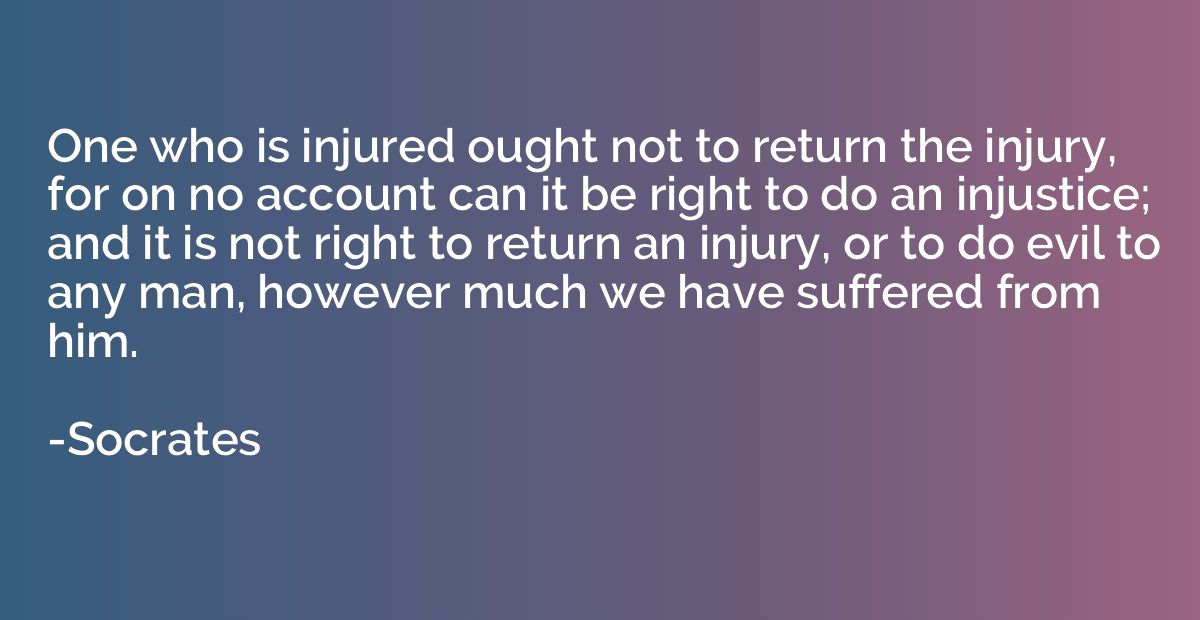Quote by Aristotle
We give up leisure in order that we may have leisure, just as we go to war in order that we may have peace.
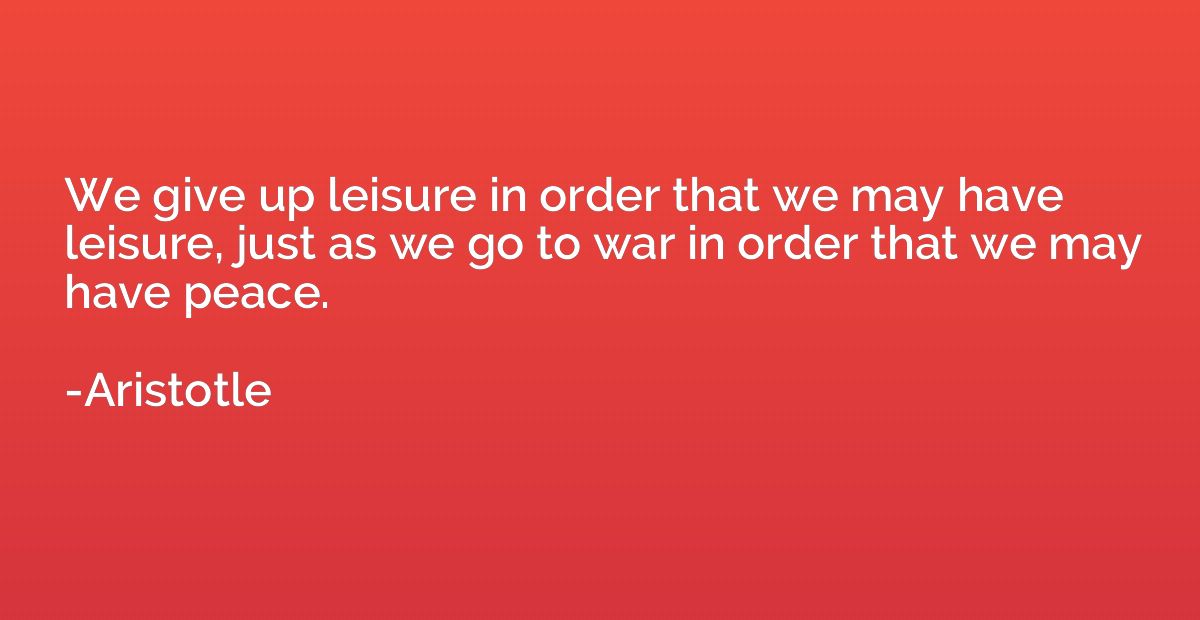
Summary
This quote implies that sometimes we have to sacrifice enjoyment and relaxation in the present moment for the sake of attaining them in the future. It draws a parallel between giving up leisure for work and going to war in order to achieve peace. Both situations involve temporary hardship or discomfort with the aim of ultimately benefiting from a desired outcome. By highlighting this paradoxical notion, the quote reflects the human tendency to make short-term sacrifices in hopes of achieving long-term rewards and emphasizes the importance of enduring challenges to attain greater fulfillment.
By Aristotle




